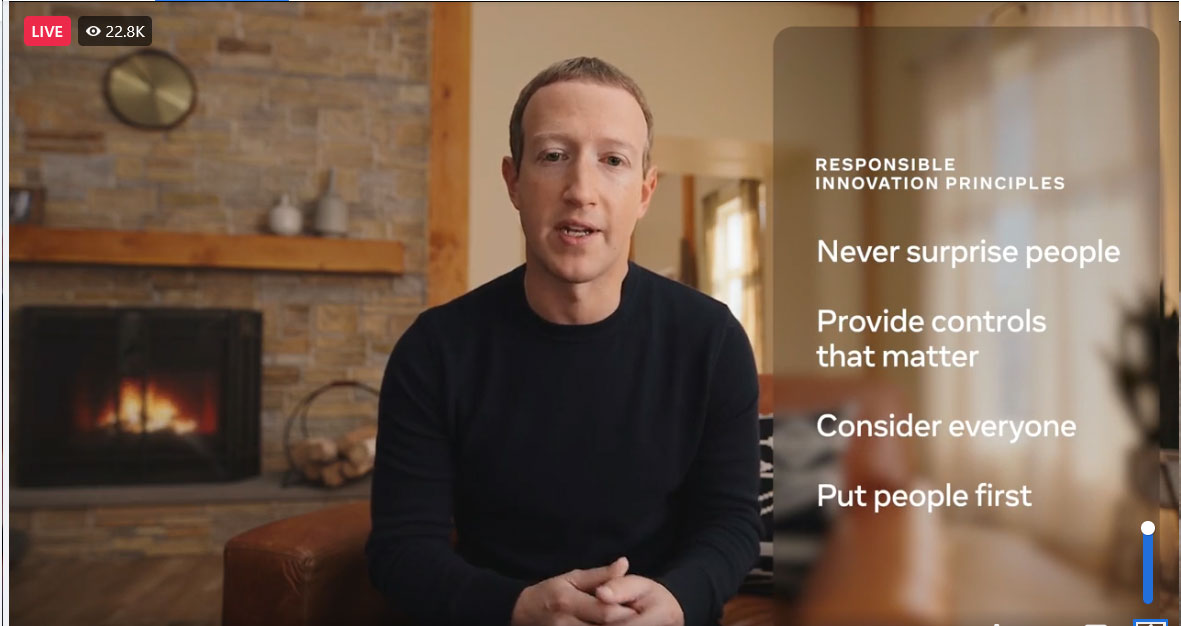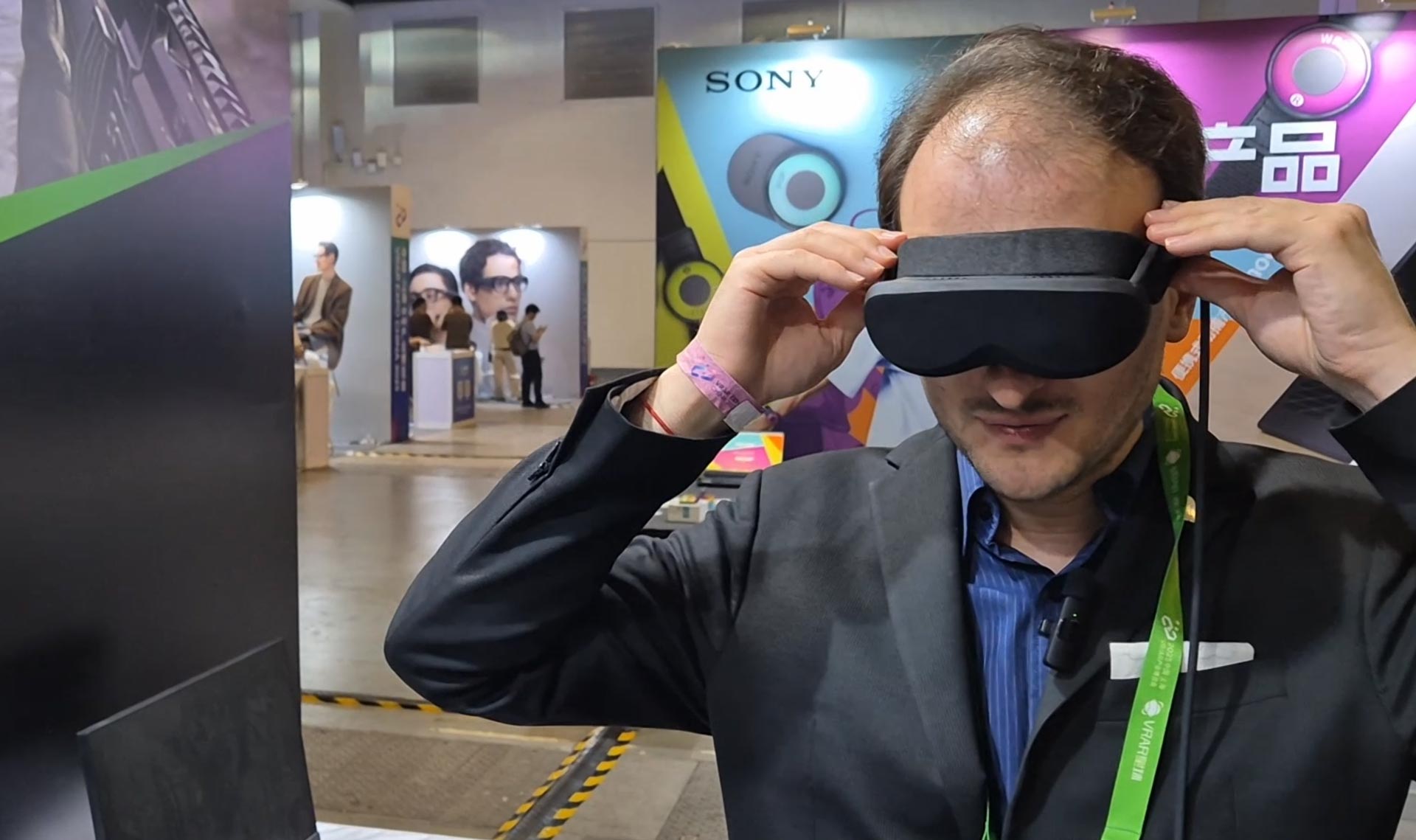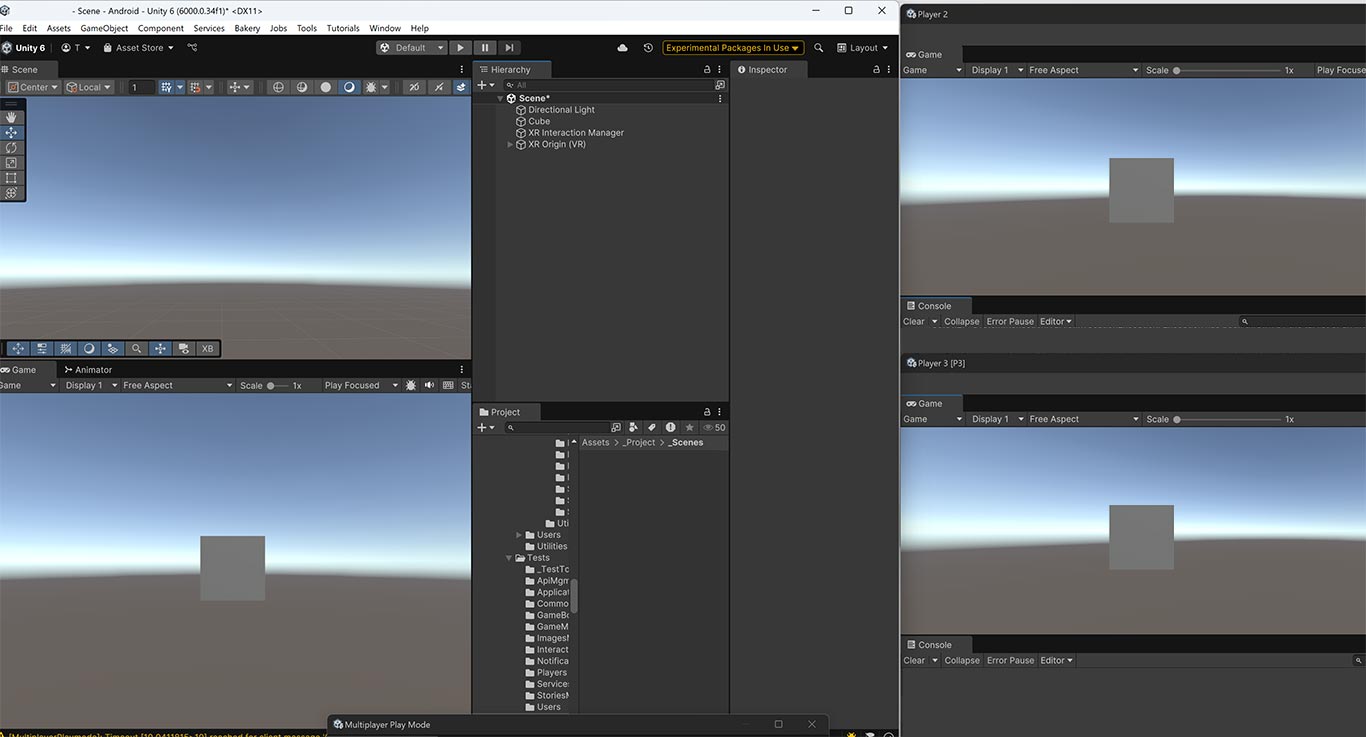Meta and the next 24 months crucial for its leadership
Meta is currently the market leader in VR, and no company does even get close to its sales numbers. The Quest 2 is a great gaming machine offered at a ridiculous price, and it has totally crushed the competition. It is the first headset that has (most probably) crossed the 10M sold units, and alone it accounts for more than 50% of VR users on Steam… without even being a native PCVR device. Meta is dominating the sector, but I think that the conditions of the market are changing and the next 24 months will be important to evaluate if it can still be the king in the future, or if the throne will go to someone else. Let me show you why.
The evolution of technology

The evolution of VR is usually compared to the one of other technologies, like the web or mobile. These two important techs have completely changed how we live in this world and relate to other people, but if you look at them, you see that the leading names in each field have changed a lot over time. Just to make an example, I was there when there was the Netscape vs Internet Explorer war, but now the leading web browser is Google Chrome. Years pass by and technology shifts and market changes lead to a shuffle of the cards, and new market leaders arise. Google Chrome, for instance, has been helped a lot by the fact that it is the pre-installed browser on all Android phones. The rise of smartphones has led to a change in the leader in the browser field.
There are so periods during the evolution of a tech with a certain group of leaders, who change over time. In the case of VR, we all remember the competition between HTC and Oculus in 2016, with HTC clearly winning the market until Oculus used Facebook’s money to slash the price of the Rift around 2017. This led to a growing importance of Oculus, until with the Quest it started dominating the market in a way no one was able to face. No one can compete now. Not HTC, which has very little money compared to Facebook/Meta; not Valve, who is focused mostly on PC gaming; not HP which seems interested only in the pro/business market. Meta has clearly won the first round of the VR match.
But the match is still long, and considering that the road to the M** will last at least 10 more years with many technology switches, there will be many rounds with many other potential winners. Meta for sure is in pole position, given its current leadership, but I think that it must be very careful about what is happening in the next 24 months. While it has effortlessly dominated the market in the last 2 years without any effort, the next 2 years may present some real risks and challenges that may question Meta’s lead. Let me show you what are some of them.
PSVR 2

I said that the winner of the 2016 match has been HTC, but actually, the real winner of the tethered headset market at that time has been Sony, with the PSVR headset exploiting the existing Playstation 4 userbase to sell more devices than the others. That’s why before the Quest, and ignoring the useless mobile headsets, PSVR has been the most sold VR device, with almost 6 million units out there. These are serious numbers for the current status of VR.
At the end of this year or the beginning of the next one, Sony is going to launch its new gaming VR device, dubbed PSVR 2. It will work with PlayStation 5 and offer amazing clarity, next-generation haptics, and for the first time on a consumer device, eye tracking. But most importantly, it will work with some amazing games available for the Sony PlayStation. According to a rumor of some months ago (reported by Upload VR), Sony was interested in developers being able to produce hybrid VR games: games that are a blast on the flat PS5 screen, but which also feature VR support. While VR purists may not love this approach, the result may be that some future famous games for PlayStation 5 will feature VR support, enticing more and more gamers to buy Sony VR goggles.
Sony Interactive Entertainment is not aiming to compete directly with Quest, and so it is pointing all its chips on graphical quality, which is exactly the Achille’s heel of the Quest. And while the whole market now has drifted towards mobile quality and standalone, if PSVR 2 will sell well, there could be a new ignition of interest towards tethered gaming to enjoy high-end graphics, to feel again that amazing sensation of truly feeling inside an environment that only PCVR can give you at this moment. PSVR can so create some ripple effects in the market: I don’t think it can compete with the numbers of the Quest (which will always be cheaper and easier to use), but it could make the market of high-end VR applications relevant again, stealing some users and some attention from Quest. It could recreate the situation there was at the beginning of the life of Quest 1, where Quest was becoming the leading platform, but PCVR was still very important. Remember that Sony owns very famous IPs, so it may launch some exclusive games with VR support that get lots of visibility in gaming magazines.
I’m not saying this is happening for sure, PSVR 2 may flop, and the chip shortage may ruin its launch, but I think what I’ve said is a serious possibility.
Apple

Apple is proposing itself to be the next competitor of Meta. Even better, it is working to become the next market leader. Apple has the most important tech brand, it has a lot of money, it has experience in shipping successful hardware and software, it has compelling content (movies, music, apps), and it has physical stores. And most importantly: every time it entered a market, it disrupted it. That’s why it is a player we must consider very seriously.
Now the rumors are intensifying of Apple announcing a passthrough XR headset either this year or the next one. I have learned that when rumors intensify, there is something real behind them, so I’m confident that Apple is going to announce this headset in the next 12 months. And from what I’ve read (and heard), it may truly be a game-changer. Most probably it won’t be a Quest competitor, since Apple is not into gaming or cheap devices: probably it will be something meant for multimedia professionals to be used to perform their work better than using just their Mac. When it will be released, for sure its launch will overshadow all the other standalone headsets on the market, because Apple has an enormous marketing power.
Meta is afraid of Apple, of course, and that’s why it is going to launch its Project Cambria headset in September before Apple releases its device. Cambria is meant to “replace your laptop”, which probably will be the mission of Apple’s headset, too. Meta wants to beat Apple by releasing a device that is comparable to Apple’s one, but is cheaper and released before it. But it has a problem: it doesn’t really know how the Apple device will be. And I think that Apple will have some surprises up its sleeves…
New VR headsets are coming…

Apple is the big danger in front of Meta, but it is not the only one, because the XR market is featuring other interesting players:
- Pico has just been acquired by Bytedance, and at Laval Virtual has de facto entered the consumer market here in the West. Pico already dominates the VR landscape in China, where Meta can’t officially enter, and now it wants to be big also in the West. Some rumors reported by Upload VR claim that it wants to launch a Project Cambria clone before Meta’s official launch of Cambria. It is also collecting a good amount of content for its store, which is improving at a crazy speed. Many people have undervalued the consumer launch of the Pico Neo 3 Link, but I think it may have big consequences for our market. Bytendace has not only enormous pockets full of money, but it has also the powerful communication channel of TikTok/DouYin, which is very popular among GenZ. My Chinese assistant Miss S told me that now in China Douyin shows a lot of ads of Pico headsets, and I think that in the next months this may happen also here in the West. Bytedance is a credible competitor for Meta… not in the next 2-3 months, but in 12-24, for sure.
- Lynx is just a small startup producing an MR headset, and it can’t compete with Quest directly. BUT it is a very loved company in the community, and it could take away with it a group of enthusiasts and makers that currently are using the Quest. And it is a European company, and now in Europe there is a growing interest in creating technologies that can compete with US and China, so Lynx may have some support from the whole European ecosystem, and become much stronger than expected;
- Samsung is working on a hybrid AR/VR headset according to many rumors. The company itself claimed at the beginning of this year that it was working on something to be released quite soon. We all know how Samsung is able to deliver beautiful home electronics devices, and it is a company that has also past experience about VR headsets (Gear VR and Odyssey+ were both good VR goggles). I wonder when it will make its move… but when it will happen, I’m sure it will be relevant for the market;
- Valve has clearly hinted that it will build a standalone headset using the lessons learned while building the SteamDeck. Valve is slow to deliver, but when it released a VR headset, it has always brought to the market devices that could innovate and get the attention of the community. I don’t expect a release to happen soon because now the company is focused on SteamDeck, but maybe in 12-18 months…
- Huawei is already in the VR field with its very lightweight glasses. The form factor is impressive since they look like big sunglasses, but it still seems that the company is playing around with the concept of VR without investing seriously in the market, yet. I guess that sooner or later it is going to happen, and this may pose another threat to Meta, because Huawei has even deeper pockets than Facebook and a stronger knowledge on 5G.
These are just some examples of possible threats to Meta in the coming times. To these, you have to add the companies that are already competing, like for instance HTC or HP.
AR glasses

We all know that the big goal of these companies is actually building AR glasses, because these will be the glasses used every day when we will all live in a persistent shared mixed reality. AR glasses represent another technological challenge, completely different from VR, and in this field, Facebook has not the leadership at the moment, because it never shipped a device of its kind. Other companies like Nreal and Microsoft are in a better position, but just because we are in the very early stages of the market.
Behind the curtains, all the big tech brands, including Apple, Meta, Google, Microsoft, are working to build AR glasses. The competition is already fierce, and for Meta dominating the VR market but losing the AR one would be a catastrophic failure.
Facebook’s problems

Meta is Facebook. Notwithstanding the name change, Meta is still very dependent on Facebook’s business and Facebook’s money. And after years of total domination in the social space, now Facebook is starting to have its first issues.
First of all, it is struggling in getting the attention of GenZ. Facebook has captured almost all the millennials, and the acquisition of Instagram has been crucial to be able to get to the younger generations. But now companies like Snap and TikTok are growing well and fast, and are being more successful among young people than Meta’s social media. It is the first time that Meta is in such big troubles on the social side. The company is moving fast in copying the competitors, but at the moment, the growth in users is mostly stagnating, and this is making investors unhappy.
The ad revenues are also heavily affected by the new policies on privacy adopted by Apple operating systems, with rumors talking about Android potentially integrating similar features in the next years. This limitation in the access to data has lowered Facebook’s income by a lot. This, together with the previous point, made Facebook lose more than $230B in value at the beginning of this year. And while it is a thing saying to investors you are burning $10B for “the metaverse” when your company is growing, it is a totally different other when you are having business troubles. For this reason, according to The Verge, Meta may slightly reduce some investments in XR because investors are not happy about the present of Meta, so they are not much intrigued by its big bet on the future.
There is also the problem of all the increasing laws about privacy and safety released by the EU. Big tech companies are also now constantly under the scrutiny of the governments, and this is not positive for them. If Meta has got big in XR also thanks to acquisitions (first of all, the one of Oculus), and now every new acquisition of its goes under heavy scrutiny, and some of them (like the one about GIPHY) have already been rejected. This is another big problem that may impact the pace of the growth of Meta in XR in the future.
Reputation debt

There is a final point to consider in all of this: Facebook has a huge reputation debt. All the privacy scandals, the safety problems, the lies of the past, etc… have impacted its public image a lot. Most people out there don’t trust Facebook, and this is why many people in the community say that as soon as there is a headset not made by Facebook, they are going to switch from Quest to it. Meta is forced to have always the best device, because it knows that as soon as there will be similar devices with similar or better capabilities, people are going to prefer the competitors. Until now, with the Quest, it has been able to keep this leadership, but can this last forever? Debts sooner or later are to be paid, and I think that in the next 2 years, Meta is going to pay its ones, with people favoring competitor headsets “to not give their data to Facebook”. So while Apple will be advantaged by its strong brand, Meta is going to be negatively impacted by it.
What will happen?

Honestly, I don’t know. I’m only sure that the next 2 years are going to change a lot this ecosystem, and we will find it in 2024 to be very different from now. For sure, there won’t be just Meta dominating, and the other ones sleeping like it is happening now. The competition is growing, and Meta is having also its own share of business problems: this mix of issues shows that its position may be impacted in the next months.
I’m pretty sure that Meta is going to still be pretty huge, though, because it has worked well until now, and it is investing huge amounts of money to dominate in the future. It has also already preparing to face the competition, with four headsets rumored to be launched from now to 2024, together with smartwatches and other cool devices. It has acquired some strategic game studios like Beat Games to protect the value of the Quest. And it is taking countermeasures to face TikTok (e.g. Instagram Reels) and iOS privacy policies. I’m sure that Meta will fight, but I’m also sure that it won’t be the only one in the XR ring in 2024 and we will have other important players in the field.
I’m very curious to discover what the future will reserve for us. And whatever happens, I will be here enjoying my XR time together with you.
(Header image by Meta)
Disclaimer: this blog contains advertisement and affiliate links to sustain itself. If you click on an affiliate link, I'll be very happy because I'll earn a small commission on your purchase. You can find my boring full disclosure here.



